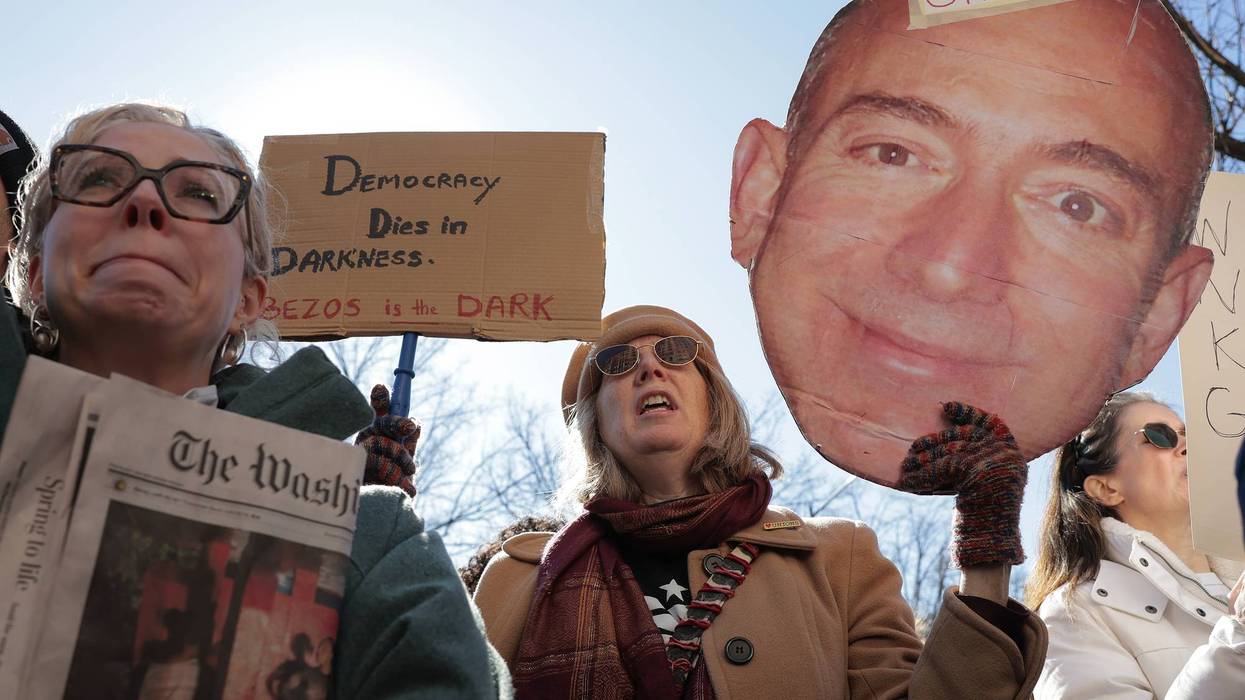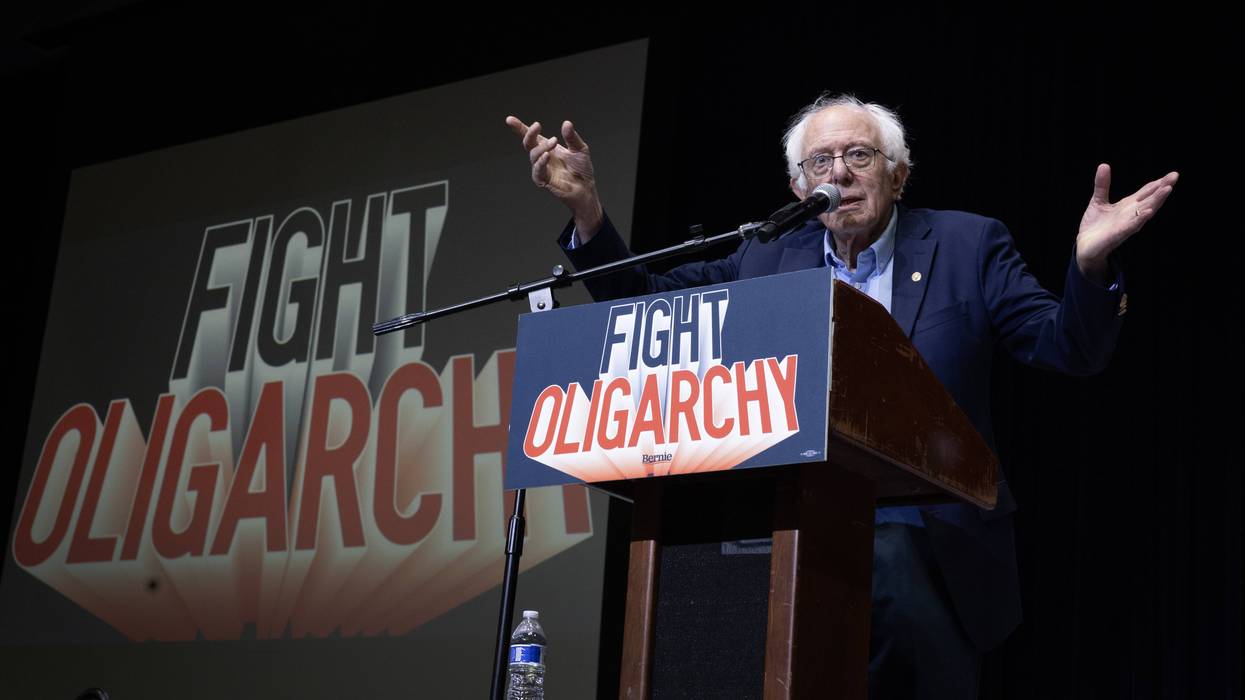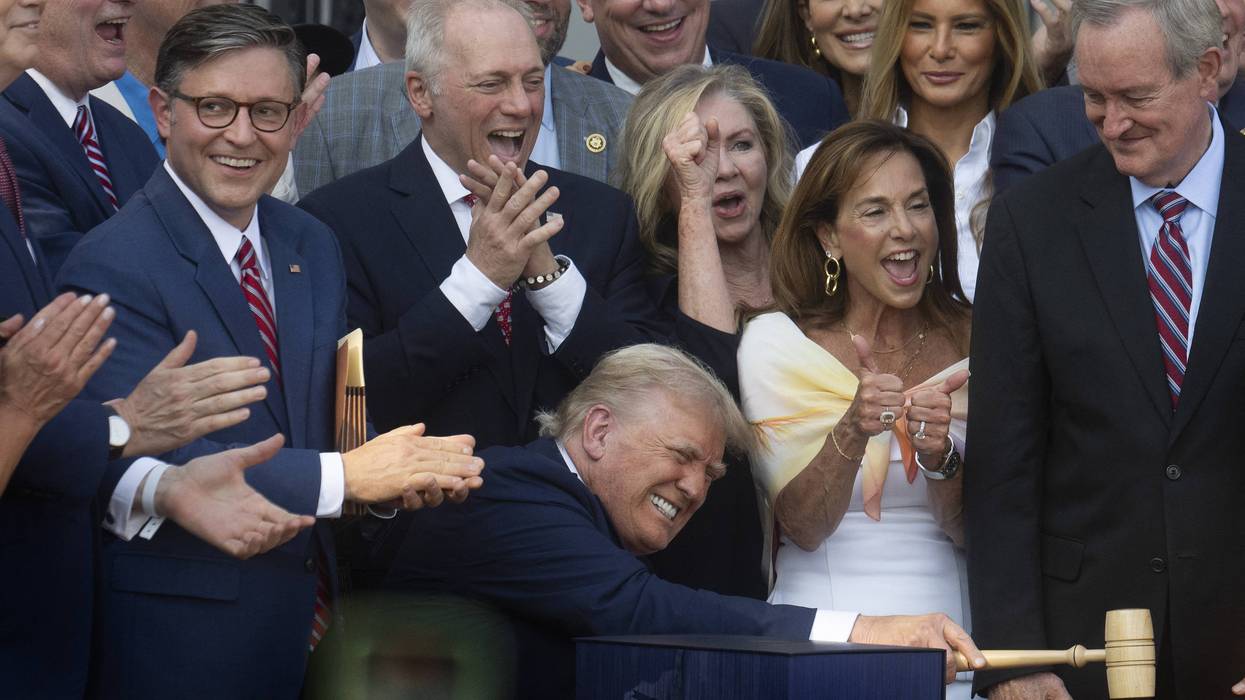A typical single American taxpayer with an income of $75,000 will pay about 9.16 percent of that income in federal income tax. That taxpayer will pay another 7.65 percent in Social Security and Medicare tax. The taxpayer’s employer will pay that same 7.65 percent, but that employer contribution actually amounts to part of the taxpayer’s pay package. So do the math: Including the employer’s payment of tax on our taxpayer’s behalf, about 22.7 percent of that taxpayer’s total pay is going for federal tax.
To be clear, we’re talking about tax on income here. Yes, we conventionally label some of these payments as Social Security or Medicare tax, but these payments all amount to taxes on the income average Americans make.
Let’s shift now to a distinctly unaverage American, the billionaire Jeff Bezos, and consider his personal tax liability on income from the sale of his Amazon shares.
Bezos has sold a good bit of his Amazon stock over the years, but he ended 2025 still holding some 880 million shares worth about $203 billion, shares he paid about $200,000 for back in 1994. If Bezos had sold these shares on the last day of 2025, he would have registered about $203 billion of gain. He would have faced standard federal income tax on that gain plus another tax known as the net investment income tax, a Medicare tax substitute for rich investors. Those taxes combined would have totaled about 23.8 percent of his gain, roughly $49.3 billion, leaving him with a tidy personal profit of about $154.8 billion.
Investments, of course, rarely perform as well as the Bezos investment in Amazon. Over 32 years, the value of the Bezos Amazon investment increased one million-fold, with an average annual increase in value of 54 percent.
Let’s place this Bezos tax story in a more enlightening perspective. Let’s imagine another investor — we’ll call her MacKenzie — who has been every bit the investor Bezos has been, with just one difference. MacKenzie has been changing her investment portfolio each and every year. To make the math easier, let’s assume her annual buying and selling has generated the same 54 percent gain each year. MacKenzie would have to pay a tax each year on that annual gain. That tax, in turn, would reduce the total amount she has available each year to invest.
How much would that reduction total? Let’s assume MacKenzie faced a mere 2.5 percent annual tax — more below on the rationale for that figure — on her gains. In her first investing year, MacKenzie’s 54 percent gain on her $200,000 investment would leave her with taxable income of $108,000. A 2.5 percent tax on that income would amount to $2,700, leaving her $305,300 — her original $200,000 plus her investment gain minus her tax on that gain — available for her next home-run investment.
If this annual investment-gain-tax three-step continued for 31 more years, MacKenzie would find herself with a total nest-egg of $153.3 billion, a whisker less than the $154.8 billion the Bezos Amazon investment generated.
There’s one huge difference between our two scenarios: MacKenzie will only have paid about $3.9 billion in tax over her 32 investing years, not even ten percent of the tax Bezos would have to pay after his big sell off.
Why the huge difference? Unlike Bezos, MacKenzie would have been paying tax annually on her income. In other words, she would have paid tax on her investment gains on the same annual schedule that average Americans pay tax on their wages. Bezos, by contrast, has not had to pay taxes annually. Our current federal tax system lets him wait until he sells his Amazon shares before he faces any legal obligation to pay tax. That delay has allowed his gains to compound, tax-free, for 32 years.
Which means that a big part of Bezos’ eventual $49.3 billion tax payment doesn’t really rate at all as a tax in a true economic sense. That payment economically rates as what Bezos has paid for the privilege of not having to pay an annual tax of his annual gains. We have a word for the price of delaying payment: interest.
How much of the $49.3 million Bezos payment amounts, in effect, to interest? All but $3.9 billion or so. We get that figure when we do the math necessary to translate the one-time tax Bezos would pay on the sale of his Amazon shares to an annual tax paid on his gains each year.
If we treat only $3.9 billion of the Bezos $49.3 billion ostensible tax payment as actual tax, the remaining $45.4 billion would be interest. If we subtract that interest from his nominal gain of $203 billion on his Amazon shares, he would be left with an economic gain, net of interest expense, of $157.6 billion. If that $157.6 billion economic gain then faced a 2.5 percent tax — the same rate MacKenzie has paid — Bezos would have paid just under $3.9 billion in tax, about the same tax that MacKenzie has paid!
The bottom line: If we translate the one-time tax Bezos would pay on the sale of his Amazon shares to an annual tax paid on his gains each year, his effective annual tax rate would be 2.5 percent, the same rate his short-term investor counterpart, MacKenzie, paid.
The other bottom line: Remember our typical single American taxpayer with an income of $75,000. The 22.7 percent annual income tax rate that taxpayer faces runs over nine times the effective tax rate that an insanely wealthy character like Jeff Bezos faces.
And that nine-times difference only holds if Bezos had sold his Amazon shares at the end of last year. If he holds those shares another ten years and they continue to grow in value, the Bezos effective annual tax rate would decrease further. And what if Bezos ended up holding those Amazon shares until he died? Then neither the Bezos estate or those who inherit the Bezos fortune would face any income tax on his investment gains at all.
Yes, you read that right. The Bezos clan would pocket hundreds of billions of dollars in gains fully free of income tax.
This is where the Post’s shilling for its billionaire owner gets really rich. “Taxing work is not ideal,” the Washington Post editorial board has cautioned us, “but an income tax is easier for a government to maintain than claiming unrealized gains that are part of someone’s estate.”
Yes, the Post editorial writers are actually arguing that taxing workers on their wages would be better for all concerned than the Bezos family paying tax on any Amazon gains remaining when their boss dies. The ghost of Leona Helmsley — ”taxes are for little people” — must have been whispering in their ears.
So where would the Bezos Amazon wealth pile be sitting today if he had been paying income tax annually at a 22.7 percent rate and had to sell Amazon shares to make the payments? A little under $34 billion. Which means that nearly 80 percent of the value — net of income tax — of the primary Bezos source of wealth comes from the obscenely low tax rate he faces on his investment gains.
This is how oligarchy works. Enormous wealth allows our oligarchs to seize media outlets. They use these media outlets to influence public opinion. That influencing makes it a whole lot easier for the politicians our oligarchs finance to cast votes that protect — and grow — the wealth of our wealthiest. That additional wealth helps our oligarchs control more politicians and media outlets.
Lather, rinse, repeat.




